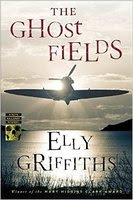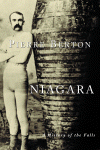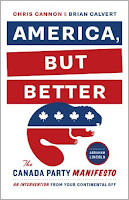Yesterday evening I had the pleasure of attending
“It’s a Crime”, a panel discussion hosted by
my local library featuring five women who kill for a living. Fictionally, that is ... five female authors all of whom write in the mystery/thriller/crime genre.
These “Deadly Dames” led an informative and very lively discussion about what it means to be a female author in the world of crime fiction. Their collective works range from cozy and historical mysteries through to a more humorous take on murder and include novels, short stories and “rapid reads” (novellas). Needless to say, an impressive body of work spanning a wide range of reader interest and preferences.
The ladies of the panel …
One brave gentleman joined the otherwise completely female audience, which was a little smaller than anticipated, although I found this made the setting and the discussion seem more intimate – a chat rather than a presentation.

Obviously, the first question addressed was WHY? – Why do these women choose to write about murder and mayhem? The unanimous answer … because its fun! A few other good points were made as well; women are predominantly caretakers and often find themselves ruled by other people’s schedules – work, children, spouses and running a home. Writing crime fiction is a satisfying way of taking back some control and guiding an untenable situation to a satisfying end. Ms. Bolin, being the cozy mystery representative on the panel stated that she enjoys writing her books because the settings were “somewhere you would want to live – well – except for the murder”. I get that! Sadly for fans of her “cozies” the recent acquisition of her publisher by another major publishing house is going to result in slowly phasing out that sub-genre.
That revelation led to further discussion about the publishing industry in general and for women authors in particular. These ladies, while successful, made it sound like a labor of love, especially in light of the fact that female crime authors fight an uphill battle as far as getting mainstream recognition.
One statistic discovered by “
Sisters in Crime”, a support organization for female crime authors, revealed that while publication of the genre consists of an equal ratio of male to female authors the mainstream media (newspapers, magazines) tends to review the books with an 80:20 ratio in favor of male authors.
In the 1980’s there were virtually no mainstream reviews of female crime writers and it became one of the mandates of “
Sisters in Crime” to increase exposure for female writers in the genre.
Despite those statistics it is interesting to note that research also shows that mystery/crime books appeal mostly to women and those female readers tend to be in the 40+ age range.
That makes perfect sense to me.
I fall into that demographic and think by that time in their lives most women either have a mental “hit list” where the fantasy appeals
(kidding – sort of) or as Ms. Astolfo pointed out, we enjoy the challenge of “
solving the puzzle”.
Trying to beat the detective to the solution always makes for a fun past time.
It was also mentioned that mysteries can be a safety zone; when there is enough uncertainty, upheaval and “scares” in real life it is nice to escape into a world where you know the “
frightening things” will be resolved.
No discussion of writing and publishing would be complete without bringing e-books and Amazon into the mix. While the ladies did admit to the fact that those two entities combined have “destroyed” book pricing and decreased their income by close to 50% they were not completely negative about either recent phenom. Both Amazon and e-books allow them to obtain an international audience and fan base that might be unachievable with solely print books. It sounded a bit like a love/hate relationship. With reference to self-publishing Ms. Bruce made the best comparison … when the printing press was invented it changed publishing too. The monks wouldn’t painstakingly write out any old book but as long as the printer was paid he would typeset anything. While self-publishing produces a glut in the market eventually the wheat separates from the chaff.
But on to a few of the lighter moments.
Have you ever included someone you know in one of your books?
I won’t reveal details (to protect the innocent) but it was a resounding “YES” by 4 of the ladies on the panel and the lone hold out seemed very quiet on the subject. Hmmm?
What are the favorite and least favorite aspects of being a writer?
Again, all the ladies were in total agreement that the favorite aspect of writing was the creative process; coming up with an idea, building the world for the story and that moment when something in your brain clicks and it all comes together. Ms. Campbell referred to it as her “turret time” … like sitting in the top of a tower until the idea comes together. The least favorite? Unanimous also – Marketing, promotion and social media. Ms. O’Callaghan also added “writer’s block, distractions and procrastination”.
Where do ideas come from and how do you keep track of your ideas?
Notes … notebooks … notes … notebooks everywhere … bedside notebooks! Obviously keeping notes and jotting things down while they’re top of mind is important. Also mentioned were laptops, voice recorders, napkins in restaurants and bars but the most original goes to Ms. Campbell who “was driving down the Gardiner Expressway during rush hour and jotted down an sudden idea using eye liner on a paper napkin”.
I had my own little notebook and was taking notes but, as happens, I would get caught up in the conversation so any paraphrasing or credit errors are my own fault. Humblest of apologies if I messed something up.
And the ideas? They can come from anywhere; a newspaper or magazine article, an overheard conversation or observing something at the grocery store. Sometimes an idea or character can be gleamed from an offhand remark made by a family member. At some time or another we all utter those words “I could kill you” and the writer just starts to wonder how that might be accomplished.
If you have read this far in this blog post then you must realize that I thoroughly enjoyed the evening. The ladies were gracious with their time, willing to share their knowledge and experience in a relaxed and very often humorous manner.
They followed the panel discussion with a reading from one of their books/stories. There is something wonderful about hearing an author read their own words, especially when they are also good readers (sorry Mr. King, I love you, but …)
While I have to admit that I have not read any of the books by these lady crime writers I do plan to rectify that as I left with a mini book haul and a little swag in the form of bookmarks. The ladies very kindly signed all the books.
All those attending were givien a “wanted poster” featuring a little blurb on each lady. I don’t know who to credit with the design (Alison Bruce I think). It was cute and I tried scanning it to include here but it didn’t scan very well on my ancient machine, so here is my pared-down version if you want to know more about each of these “Deadly Dames”.
CATHERINE ASTOLFO
Wanted for delving into the dark side of the human soul. Do not be fooled by her pleasant demeanor and flowing prose. Astolfo knows evil and writes about it.
Award-winning author of short stories, novels, novellas, and screenplays.
JANET BOLIN
Specialty killer favoring weapons of mass crafting. Bolin’s crimes involve needlework of all kinds, quirky characters and deadly puns.
Janet Bolin writes the Threadville Mystery Series – machine embroidery, murder, and mayhem in a village of sewing, quilting, yarn, and other crafty shops. Threadville Mysteries have been nominated for Agatha and Bony Blithe Awards.
ALISON BRUCE
Known for consorting with law officers. While working undercover as a crossing guard, Bruce plans murder, mayhem and the occasional horse chase.
Author of mystery, romantic suspense and historical western romance novels. Three of Alison’s novels have been finalists for genre awards.
MELODIE CAMPBELL
Mistress of the comic caper and able to leap small curbs in stiletto heels, Campbell is known for stealing art, shoes and numerous awards.
The Toronto Sun called her Canada’s “Queen of Comedy”. Melodie Campbell has won The Derringer, The Arthur Ellis, and eight other awards for crime fiction.
JOAN O’CALLAGHAN
O’Callaghan has managed to maintain a low profile by authoring perfectly innocent nonfiction books as a cover for her nefarious crime sprees in short fiction.
Joan has had an active career in freelance writing, with over 30 educational publications to her credit. Her short stories have been published in anthologies and online magazines. In 2014, her flash fiction story, “Torch Song for Two Voices” won the Polar Expressions Publishing contest.



















































